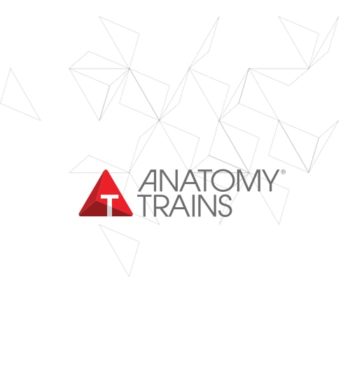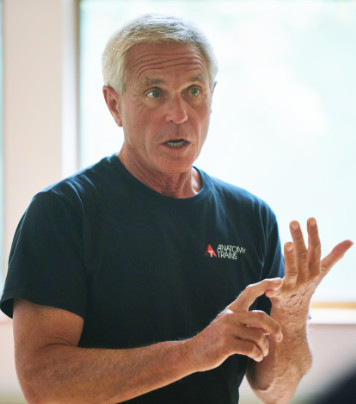One short course… long-lasting results for you!
Set your anatomy knowledge free! Thomas Myers’ Anatomy Trains® weekend intensives are holistic, fun and very useful. Completely transform your view of myofascial anatomy and expand your ability to assess your clients.
The Anatomy Trains concept moves beyond mechanical “cause and affect” actions of muscles to the integrative relational connections of real-life functional movement. This is a revolutionary map for analysing soft-tissue patterns, and developing strategies for unwinding these patterns via fascial and myofascial work. Anatomy Trains offers skills that hands-on therapists, regardless of their modality, can use to see their clients more clearly and work more effectively.
Workshop Format:
The workshop is split into equal time on:
1 Lecture/presentation,
2 BodyReading™ and postural analysis, and
3 fascial plane and myofascial plane techniques from Tom’s KMI Structural
4 Integration and movement education library.
This course helps you:
- BodyRead your client’s postural and movement patterns with greater accuracy and integration
• Gain access to effective treatment strategies for resolving postural distortions, which may occur some distance from the site of pain or limitation
• Enable you to make distinct changes in your clients’ structure in a few short moves.
Course Objectives:
- Understand basic properties and connected nature of fascia, and tensegrity applied to fascia and human movement
• A succinct and relevant introduction to geometry/character of the connective tissue, and the topology of fascial planes
• Be able to identify and trace the 6 major and 6 supplemental fascial meridians along which movement, tension, and postural distortion travel
• Be able to BodyRead™ postural patterns based on analysis of Anatomy Trains lines
• Apply knowledge to construct a bodywork session appropriate for the specific pattern of each client
• This course also serves as a prerequisite for entry in the KMI 500-hour Certification Training
Learning Environment:
- Illustrated lecture
• Open inquiry atmosphere; questions encouraged; high degree of vitality and humour
• Participants will exchange palpation and practice BodyReading (visual assessment) on one another under supervised analysis of instructor and assistants


